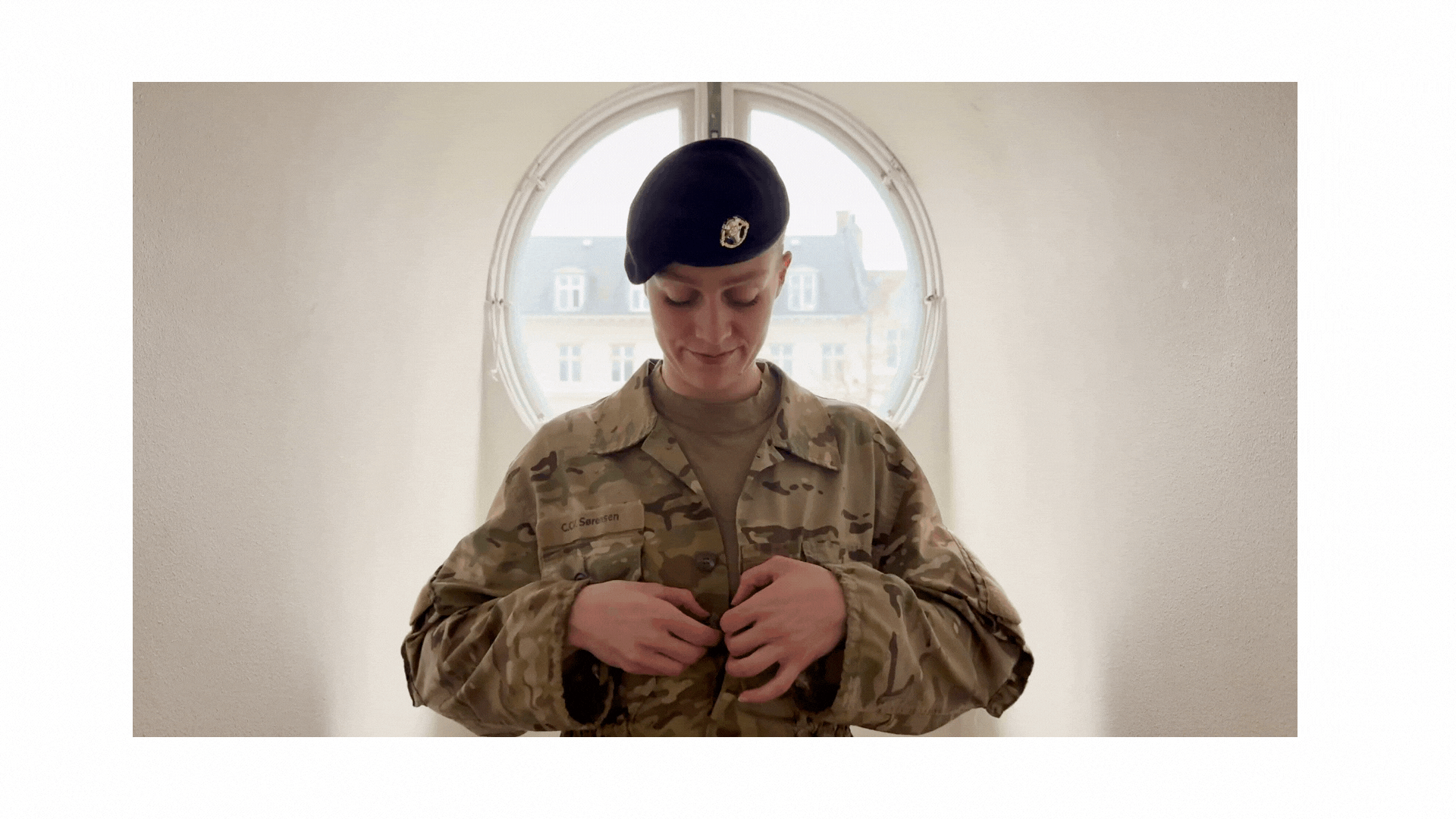Queer Discrimination Persists, but Armenian Youth Liberate Themselves on the Dance Floor
Queer Armenians face deep-rooted stigma. Legal protections remain weak, and discrimination is widespread across society. Progress is at a standstill, but during the weekends, safe havens for these minorities appear in Yerevan’s nightlife.
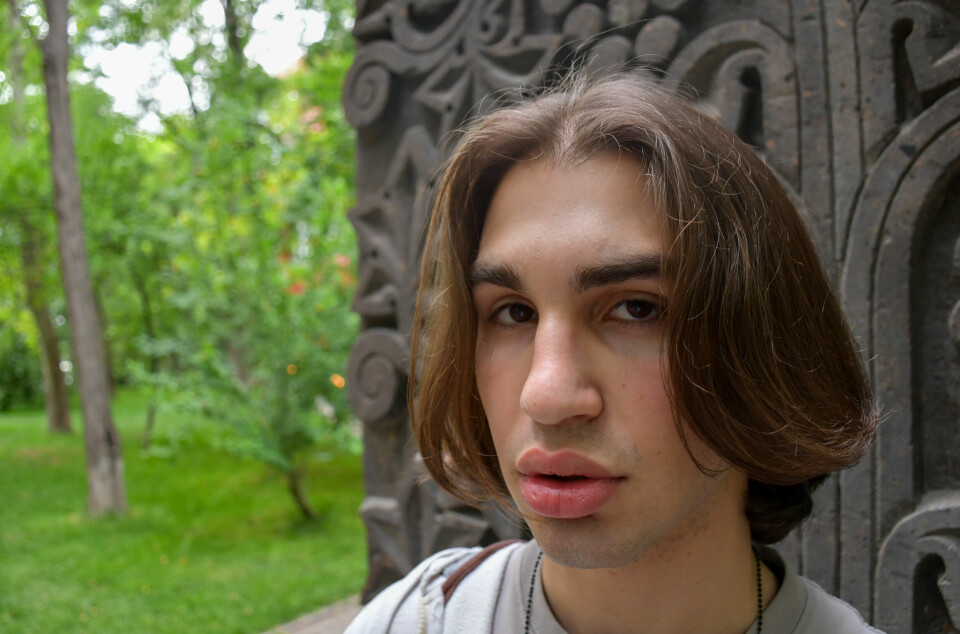
In this article, several sources appear only by their real first names. This is to protect their privacy and ensure their safety, both professionally and privately, given the sensitive nature of the topic. The editorial team is aware of the full identities of all sources.
“Why do you need this?” Karen’s mother asks him.
“It’s for a photo shoot. It’s for styling the models,” Karen answers.
Being queer is heavily stigmatised in Armenia. Telling his mother the whole truth is not something he wants to do right now as a young gay man.
He continues going through her wardrobe. Jewellery that he likes gets put aside, and he chooses a couple of dresses and puts them on the bed. The careful outfit selection is made under the pretence that the pieces will be used for work, in a photo shoot at the fashion agency he works at.
“Can I take these to the shoot as well?” he asks, holding a pair of black high heels.
She agrees but wants them back by Monday. Karen thanks her and carefully packs everything away into a suitcase so nothing gets wrinkled.
They have never spoken with each other about him being gay. As far as Karen knows, nobody has told her that he is doing drag shows. He is not planning on telling her the real reason for borrowing the clothes, at least not anytime soon.
Legal, but not safe
Michel Vincent Anderlini is an assistant senior lecturer at Malmö University, specialising in post-Soviet countries and the Caucasus region. He mentioned that even though homosexuality was decriminalised in 2003, LGBTQ+ people still live in fear of discrimination both in the workplace and their private lives.
“One big reason for this is religion. The Armenian Orthodox Church is very against LGBTQ+ rights, and Armenia is a very religious country,” Michel Vincent Anderlini said.
Hripsime Kizogyan is the executive director of Pink Armenia, one of the biggest NGOs working for LGBTQ+ rights in Armenia. She stresses that Armenia prides itself on being the first Christian nation.
“This argument is very often used by Armenians, saying that we as a first Christian country, we cannot tolerate gay people,” she said.
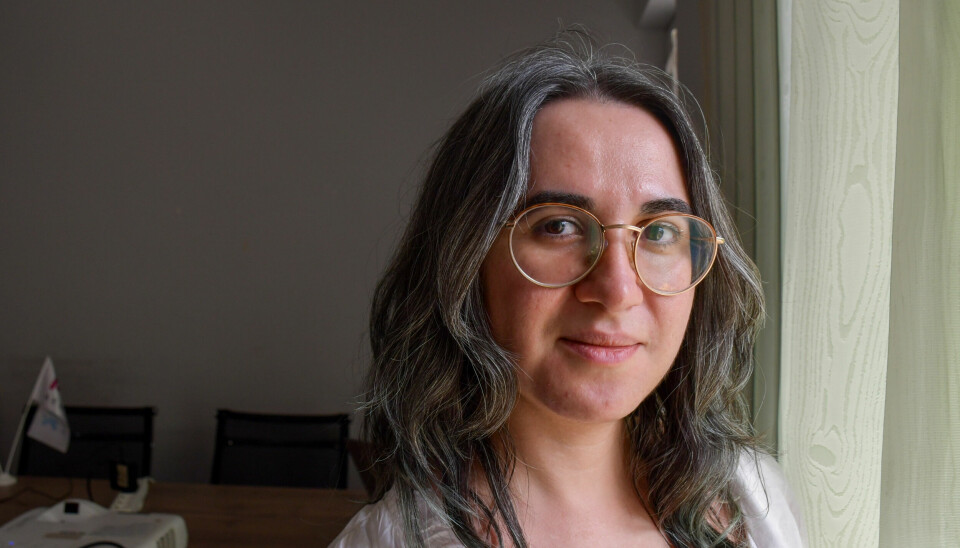
According to the 2021 Caucasus Barometer, a public opinion survey conducted by the Caucasus Research Resource Centers, 25 percent of respondents in Armenia said they would least prefer to have gays as neighbours, the highest percentage for any category. In comparison, 24 percent said they would not want to live next to drug addicts.
The same survey also found that 84 percent of Armenian respondents disapproved of doing business with gays, reflecting widespread prejudice toward LGBTQ+ individuals.
Karen and his brother used to be very close. But as they grew older, his brother would hear more and more people saying that he had a girly sibling, a gay brother. Eventually his brother found out through a TikTok video.
“Oh, you’re gay? Ok, that’s it,” is all he had to say to Karen when he found out. They didn’t speak with each other for a long time after that.
With friends Karen first started talking openly about being gay when he was 14. They never had any issues with his sexuality, though other people would bully him. Since then, he has found a queer community in the Yerevan nightlife, going to clubs and performing at drag shows.
Tiny steps in tough terrain
Armenia also has a poor international standing on LGBTQ+ rights, as reflected by its score in the annual rainbow map, published by the International Lesbian, Gay, Bisexual, Trans and Intersex Association Europe. In 2025, Armenia scored just nine percent, placing it near the bottom among European countries, ranking only above Russia, Turkey, and Azerbaijan. This low score highlights serious gaps in legal protections and social acceptance for LGBTQ+ individuals, and the overall situation remains largely unchanged over the last few decades, according to the same study.
Every year, 49 countries are assessed on their LGBTQ+ human rights laws and policies. The map shows how well each country is doing: the darker the colour, the better the performance and the higher the score.
With support from private and international donors, including several European aid organisations, Pink Armenia offers psychological support, legal advice and queer friendly social gatherings. In May every year they also publish a report on the state of LGBTQ+ community in Armenia. There, they state the need for anti-discriminatory legislation directed at LGBTQ+ related crimes.
The current discrimination laws in Armenia do not specifically protect LGBTQ+ people, meaning that the justice system is unavailable to big parts of the queer community, according to Hripsime Kizogyan. The lack of anti-discriminatory legislation has been criticised by Amnesty International and the European Court of Human Rights.
Hripsime Kizogyan describes that there is a lot of stigma surrounding queer individuals. Video by Cathrine de Nijs Johansen.
But there are some small steps that have been taken in recent years, Michel Vincent Anderlini pointed out. One of the first steps was taken in 2019, when the Armenian parliament invited trans woman and activist Lilit Martirosyan to speak in front of the parliament.
”She was very vocal, saying that trans people in Armenia suffer from rape, they’re being tortured, they’re being kidnapped. Something that had never happened before. It was a small, but positive step,” Michel Vincent Anderlini said.
Although Hripsime Kizogyan still describes the situation for the LGBTQ+ community as dire, she also thinks it has improved in the last 10 years.
”We have more visibility now. People no longer deny LGBTQ+ existence in Armenia. Despite more hate speech, articles are being written and questions asked,” she said.
Glitter and grit
Hripsime Kizogyan stressed that the situation is very different when talking about other parts of the country.
In Armenia’s second biggest city, Gyumri, the mayor recently said that “If the Armenian Church ever marries homosexuals like in Europe, then I will shoot that priest in the church.”
The remark was criticised by several NGOs in Armenia, and Lilit Martirosyan of NGO Right Side has threatened to take the case to the European Court of Human Rights.
“In the regions outside Yerevan it’s not safe to even look a bit different than heteronormative perception of how people look”, Hripsime Kizogyan said.
Meanwhile Hripsime Kizogyan mentioned that there are places in Yerevan where LGBTQ+ people can feel safe.
“In Yerevan, as a queer person you would most likely be able to find your own group of friends and create your own safe space. It’s thanks to a lot of very brave queer artists that we have these spaces,” Hripsime Kizogyan said.
Garo, known as djender on stage, stands in front of the DJ booth. In line with him, A thunder of synths and basslines gathers around him, surging toward the dancers at the cultural venue Esthetic Joys Embassy in Yerevan. Long curtains fall from the ceiling to the floor, catching flashes of pink light that shoot upward. A spotlight scatters into the faceted mirror of a disco ball, sweeping small dots across the room like comets.
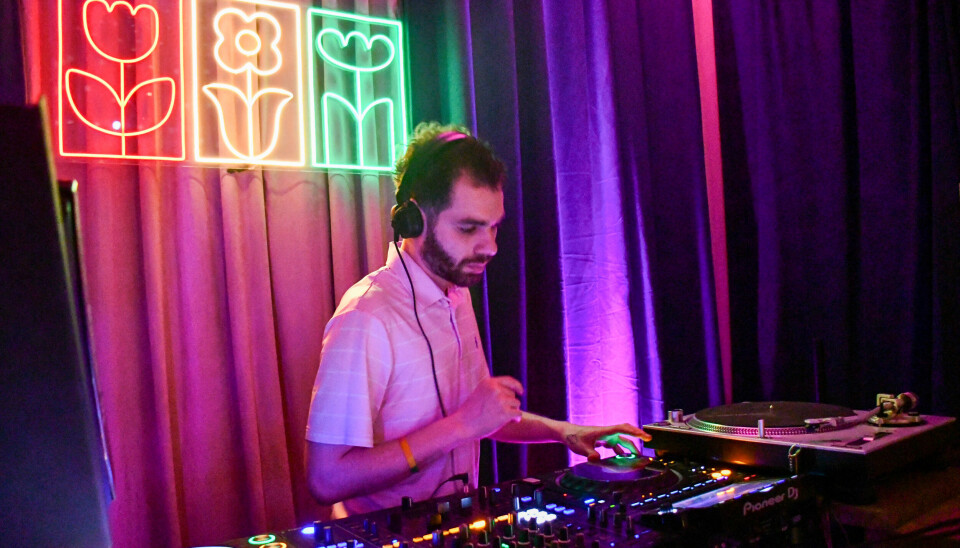
His sound combines catchy melodies laid over sharp, assertive kicks. His music is a form of expression, and mirrors what he stands for.
“Finding out my sexuality was hard at first. I was confused, and being gay had very negative connotations. I try to express this through my music. It doesn’t need words – it’s a feeling,” Garo said.
Every track carries a fragment of that journey: the confusion of puberty in a place where queerness was taboo, the slow understanding of identity, the public coming out that felt both scandalous and liberating.
“I say my gender is fluid, but it is because I don’t see gender. To me, it is all constructs. A man should do this, a woman should do that; I just don’t believe in that,” Garo said.
Here, Garo explains how certain elements of his life can be interpreted through his music.
The floor shakes gently with bass, and a dancer near Garo smiles to themselves, eyes closed. The crowd trusts him, following the shifts, pauses, and the drops, like riding waves only Garo can see coming.
“These clubs were my first example of what a safe space should be. I could be myself completely. The staff were attentive, the people open and honest. It doesn’t always have to be positive, it’s also a place that I can be sad in too, because it’s safe,” Garo said.
Now, in this space – among dancing bodies, soft smiles, and loud beats – freedom feels real. Garo isn’t here to prove anything. He is here to feel free and to let everyone else feel it too.
“It started with the idea to express myself in a feminine way, which is a freedom I didn’t have before. In clubs, you feel truly free, until you step outside and meet discrimination. That’s why music helps,” Garo said.
As the track climaxes into a glimmering synth line, Garo lifts his head, briefly scanning the crowd. There’s joy, sweat, queerness and care.
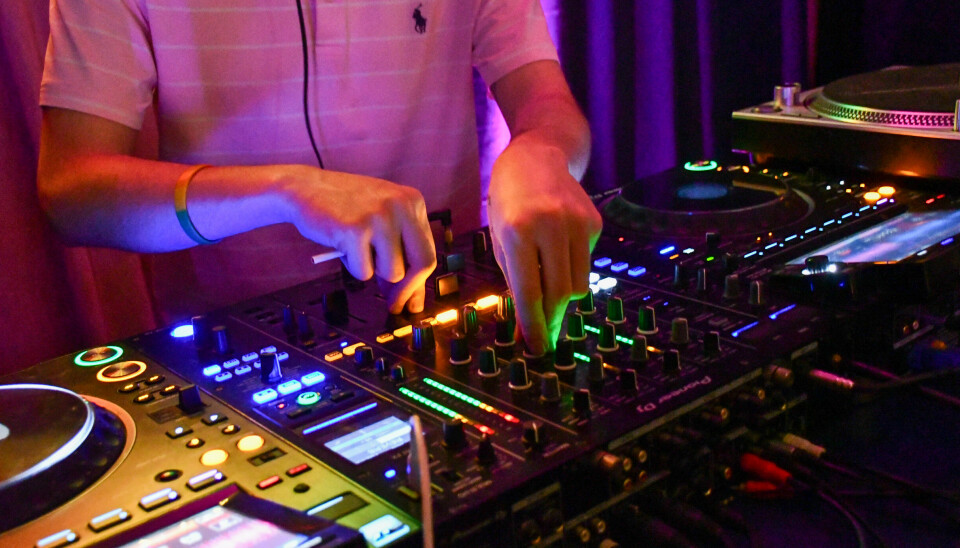
From protests to promise, but queer rights still lag
After the Velvet Revolution in 2018, where Armenians launched to the streets to protest authoritarian leadership and corruption in the government, Protest leader Nikol Pashinyan won the following election in a landslide victory. He promised to combat the corruption and increase democratic values.
At Pink Armenia, the promises of the new government were met with excitement and hopes that the democratic changes would also include LGBTQ+ rights.
“We finally got rid of the oligarchic system that had been ruling the country for more than 30 years, but the government is still not doing enough. They didn’t even manage to provide a sense of safety,” Hripsime Kizogyan said.
In April 2025 Armenia adopted a law setting the legal ambition of joining the European Union. Although prime minister Nikol Pashinyan has stated that the public should not expect a rapid accession, the move towards Europe could lead to an improvement of human rights in Armenia, according to senior lecturer Michel Vincent Anderlini. Something that he believes can help the LGBTQ+ community.
“Armenia would have to abide to the laws and standards of the European Union, and there is a lot of research that suggests that the situation for minorities does improve during accession negotiations. But it takes a long time,” Michel Vincent Anderlini said.
Hripsime Kizogyan at Pink Armenia is hopeful about the continued work of organisations in Armenia to shift policy and can see differences in younger generations being more open to queer people. A new discrimination law has been discussed in Parliament since 2024. Hripsime Kizogyan thinks positive changes are possible.
“We are going through some very, very important changes right now, and I think we are deciding on whether we are moving towards more democratic values,” Hripsime Kizogyan said.
Liberated on the dancefloor
As legal reforms and shifting attitudes signal progress, Kizogyan emphasized that spaces of safety exist, especially within Yerevan’s nightlife.
“You are able to go to cafes which are queer friendly and to go clubbing and feel safe,” Hripsime Kizogyan said.
One of these individuals who has found such a place is Tigran, a regular on the rave scene. He can be found dancing into the early hours with his close-knit circle at Yerevan’s underground parties. Born and raised in the Netherlands to Armenian parents, he later moved to Armenia in search of a deeper connection with his cultural heritage, though there is a part of himself he is still hesitant to share.
“My relatives have no idea. They’ve never asked me, and we’ve never talked about it. I’ve never explicitly told them, and I feel like that would be a big, big issue,” Tigran said.
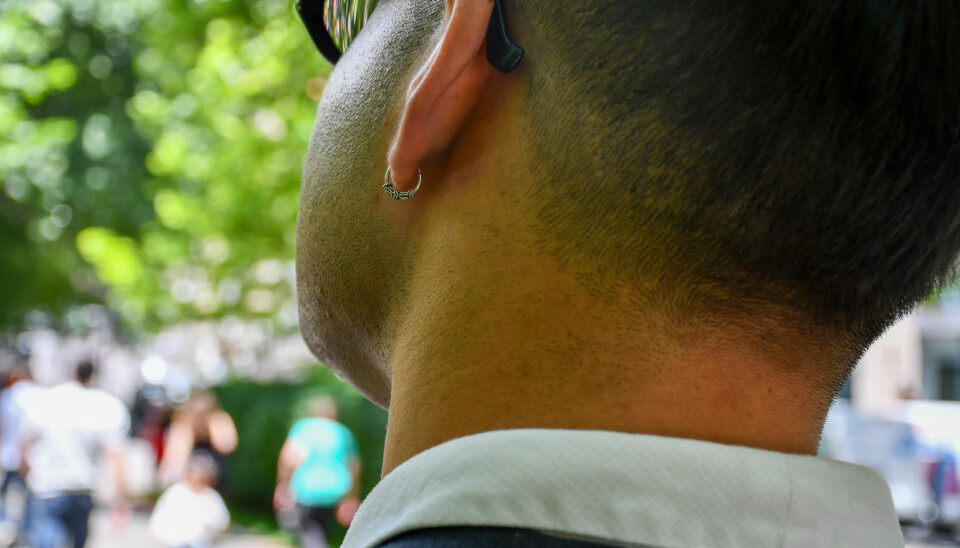
He stands before the mirror of his wardrobe in his bedroom. He reaches for his necklace and earrings, a little extra something. Then a tight black crop top that clings to his torso, cutting off just above the waist to show the subtle curve of his stomach. He pairs it with a worn, light-blue pair of jeans. Nothing extravagant, but just naked enough, as he describes it.
Tigran is heading out tonight. Not to blend in, not to be careful. Tonight is for release. Before he goes, he puts on an overshirt. Partly because of the cold evenings, but also to avoid attracting stares before arrival.
“It is a good choice to not provoke anything. I would for sure trigger people. It’s a big shame to be gay here. It’s one of the worst things you can be in Armenia,” Tigran said.
At a friend’s apartment, pre-drinks spill into laughter. Tigran feels the revelry, not just from the vodka-redbulls making him and his friends tipsy, but also from the anticipation of the night.
They are heading toward the club Hayfilm, just outside of Yerevan. The techno beats are heard from outside the club. Inside, it’s dark. Not the kind of darkness that threatens, but the kind that liberates.
“It’s also a bit more anonymous; no one cares that much. No one’s watching or judging you. Being there with the people I love; it just makes me feel free. I’m immersing myself into the atmosphere, which feels very warm,” Tigran said.
Tigran and his friends ease into the space like regulars through Hayfilm’s bare concrete walls, brushing shoulders, nodding at familiar faces. He has come here to dance. Eyes closed. Coloured lights pulse in sync with the beat, washing the room in slow waves of red and white. The crowd is a mosaic of tight tops, painted nails, shaved heads and glittering cheeks, all moving along to a heavy bassline.
“When I’m there with my boyfriend, it’s an escape where we can share feelings of euphoria. It’s a freer space to express my sexuality without worrying as much,” Tigran said.
This is the moment when work stress, social tension, and the caution that many queer Armenians feel they must carry are sawed off by the harsh beat. He is not someone holding back. He is not being read, assessed, or judged. For him, the dancefloor is a place of liberation, where his identity as a gay man resonates with the beat.
“I feel like a lot of these clubs genuinely believe in the idea of a safe space. I’ve never seen any regular venue take the same kind of measures to ensure diversity and safety,” Tigran said.
Despite attempts to obtain a statement, the ruling party Civil Contract has not addressed the criticism voiced by Pink Armenia.






